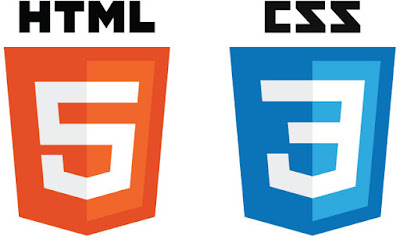HTML and CSS are the most important technologies you have to know in web development. Even though the easiest ones, they provide the basic structure for the static pages of your website. HTML is a markup language made of elements expressed in tags and various attributes they can have. On the other hand, CSS stands for Cascading Style Sheets and provides the necessary styling for pages. Both of them are pretty easy to start learning, and they give a beginner a taste of what is it like to program.
HTML and CSS are not programming languages, but they do have certain rules and syntaxes, which is common trait for other programming languages out there.

Easy to Learn
Seems like a joke, but seriously, think about that. Most projects require that you design a website’s static pages just like a psd template they found on the internet. This is where the whole thing enters a new level. It is easy to start on your own and build whatever it comes to your mind, but when requirements are mandatory, things get harder. While HTML is basically of the same "difficulty", CSS seems to be messing everything up and wasting you hours on little details that need to be on the right position, showing properly on smaller screen devices and stuff like that. Not to mention vendor-prefixes that make your work look different on different browsers. However, don’t get too scared. Frameworks are here to help in a lot of aspects.
CSS Frameworks
CSS frameworks are the most common thing you’ll ever encounter on websites you or others build. It means less code by you, and getting more done properly. While there are a lot of frameworks that have already made it to potential customers (that is, well-known websites) the most popular ones usually have more features and provide better stability. One of the world’s most popular front-end frameworks is Bootstrap which makes development in the front-end faster and easier. And it is really easy to learn thanks to the great documentation online. Another awesome framework for CSS is Foundation by Zurb which also provides quite a lot of features and tools.
What’s Next?
One thing is for sure, HTML and CSS are going to be here for a way too much time. No website can function without these two core technologies, that provide the core markup for pages. Both are widely supported in forums and discussion boards on various famous sites on the internet and that is what you will need from time to time, a way to get things working when you’re stuck.
Having a good knowledge in HTML5 and CSS3 (referred to as the latest versions) will most probably serve you for a brighter path on other langauges, but it might also be getting you a job, like working on HTML and CSS as a designer, especially when you’re coding the pages you’ve designed. Everybody will appreciate that.


